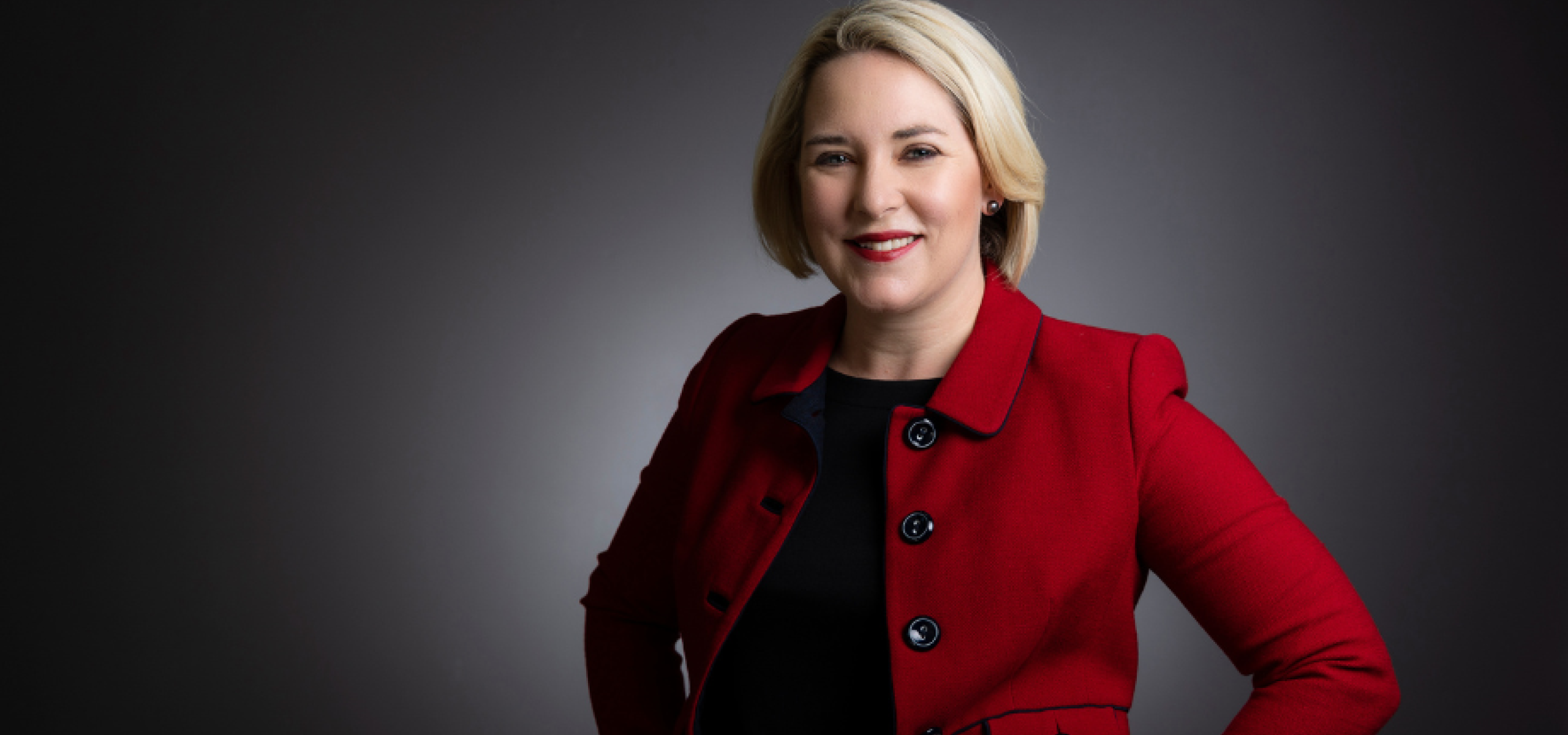
Annie Haggar is the founder of Cyber GC - a legal consultancy focused on cybersecurity and technology. Photo supplied.
There will always be work in emerging technology and the way it intersects with the law.
Annie Haggar (BA/LLB ’06, GDLP ’07) has never been a tech whiz. She does not code and aside from Information Technology Law, she steered clear of most tech-oriented subjects at school and university. However, her curiosity in figuring out how things worked and playing with different gadgets led her towards a successful career working in technology law.
Annie’s journey into the intersection of law and technology started out with what seemed to be a regular dinner party with her parents, who introduced her to old friends who were starting up their own firms specialising in technology law and had Commonwealth government departments as some of their clients.
“I was their first employee and the learning curve was very steep. Not only did I need to learn about government procurement, Commonwealth contract templates and probity, but I also had to get my head around what a managed information and communication technologies (ICT) services outsourcing project was about,” she recalls.
From there, Annie proceeded to work on various other projects that involved a different type of technology or a different business need that was being solved through innovation. In her nearly two decades of being in the industry, it is the constant change that keeps her on her toes, excited for what’s next.
“The pace of technology change has only increased and the issues faced by the intersection of emerging technology – such as the metaverse, ChatGPT and other AI (artificial intelligence) and robotics – and the law are only getting more complex,” she says.
After over a decade working for global professional services firm Accenture, building and working for the firm’s cybersecurity legal team, Annie moved on to the next chapter of her career by opening her own start-up law firm: Cyber GC.
“Cybersecurity issues are endlessly fascinating and constantly changing, but the work I was doing was mostly supporting a global business and client base,” she says.
“When Australia suffered our two biggest domestic cyber-attacks in our history, and the country suddenly woke up to what a huge threat we were facing, I could see how underprepared we are and how much needed to be done,” she continued.
Her goal is to leverage her skills and experience in helping Australian businesses prepare for and handle cyber-attacks that could potentially have devastating consequences. With her tech and legal background, she wants to educate in-house legal teams, businesses, and the broader community on cybersecurity and play an active role in preparing for, defending, and recovering from cyber-attacks.
“Cyber GC isn’t a ‘typical’ law firm – it can provide consulting and strategic advice and support to business executives and boards on cybersecurity issues, provide a bridge to the legal team and help triage what needs to be done first,” she says.
In starting her own firm and with her extensive experience and success as a leader in the legal and tech sectors, Annie also hopes to inspire more women to eventually break barriers and forge themselves into the upper echelons of the industry.
“We can all see that the lack of women in senior leadership positions is not changing fast enough. The argument that there aren’t qualified women in sufficient numbers is simply not true and hasn’t been for some time – the barrier is access to opportunities on an equal footing,” she says.
While we see more women in science, technology, engineering and mathematics (STEM) fields, Annie believes that change and progress at the top can be further achieved through more opportunities. This includes advancing women in directorship roles and getting them the experience needed at management levels below the most senior levels so they are an obvious choice for the ‘top jobs’.
Improving regulation is also a key goal, Annie observes.
“There is scope to regulate to require our publicly traded and funded bodies to be governed and led by a representative cross-section of Australia,” she says.
“There are a few mechanisms available in regulation and policy that could be introduced – requiring a representative board for all ASX listed companies, and for all companies receiving public funding,” she continues.
As she moves forward to the next phase of her career, Annie reflects fondly on her time at The Australian National University (ANU) College of Law, where she built many lasting personal and professional friendships.
“There are many people I met in my classes, tutorials, and social events that I now turn to for advice, guidance, and friendship almost 20 years later,” she says.
As Annie looks towards the future, it is her hope that she would actually need to re-focus her business towards something else, envisioning an Australia that is the most cyber-secure nation in the world. While she acknowledges that this is likely a longshot, she still hopes that more people continue to take cybersecurity as a real threat and that organisations continue to invest time and resources into education and upskilling.
She also looks forward to emerging technologies and potentially taking on projects in those spaces in the future.
“There will always be work in emerging technology and the way it intersects with the law. Luckily for me, this is also an area of passion and experience and maybe I can set up a legal practice in the metaverse and provide advice on the latest technology trends and the law,” she says.